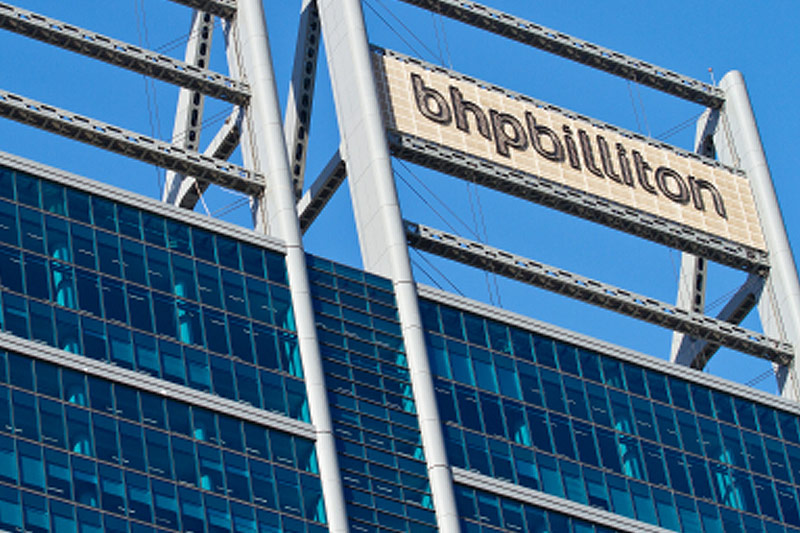(Repeats item issued earlier. The opinions expressed here are those of the author, a columnist for Reuters.)
* BHP and peers vs. commodity prices: http://tmsnrt.rs/2pF5uB8
By Clyde Russell
LAUNCESTON, Australia, May 18 (Reuters) - Hedge fund Elliott Management is probably about half way to achieving its goal of extracting better returns out of BHP BHP.AX , the world's largest mining company.
It's not so important to focus on the nitty-gritty details of the activist investor's proposals on how BHP should hive off its petroleum arm and consolidate its dual-listed structure.
What does matter is the fact that Elliott, since it went public on April 10, has managed to put pressure on BHP's management and board to do more in the name of shareholder value.
It was always likely that BHP's leaders would reject Elliott's plan, and so it proved as the company said it would cost too much to implement and wouldn't deliver Elliott's anticipated benefits.
But since then BHP has been forced into the somewhat uncomfortable position of having to explain its plans and set forth a vision of how the company will lift its returns to its owners. Chief Executive Andrew Mackenzie, speaking to an audience of bankers and investors in Barcelona on May 16, said the miner had made consistent progress and was confident it could grow the value of the company by up to 50 percent and almost double the return on capital.
"Our path is deliberate, with value and returns at the centre of everything we do," Mackenzie said.
In an earlier statement, BHP also rejected claims by Elliott that it was not open to change and had been misleading in its response to the New York-based investor's plans.
If Mackenzie's comments and the statement sound a tad defensive, it's probably because they are.
BHP finds itself on the back foot just at a time when it probably thinks it has a reasonably good story to tell the market.
The sustained efforts to cut costs at its major iron ore and coal operations have paid dividends, making BHP a leaner and more efficient operator.
On the commodity price front, while it's the case that iron ore and thermal coal have lost ground this year, they are both still well above the levels that prevailed at the start of 2016.
Coking coal, used to make steel, is currently still at elevated prices, but this is due to the lingering impact from Cyclone Debbie, which damaged infrastructure in Australia's Queensland state, home to BHP's major coking coal mines.
The price of crude oil has been relatively positive for BHP, as it and other companies outside the agreement between OPEC and some allied producers ride on the coattails of the gradually tightening market.
CASH GENERATOR
Even with the retreat in some commodity prices this year, and the mixed outlook for top buyer China, BHP is still generating strong cash flows.
For example, the spot Asian iron ore price .IO62-CNO=MB has dropped 34 percent since its peak so far this year in February to the close on Wednesday of $62.20 a tonne.
But even at the current, lower price BHP is likely generating around $30 in free cash flow from each tonne of iron ore, a sum that runs into billions of dollars quite quickly when you consider the company aims to produce 268 to 272 million tonnes this financial year.
It's this sort of cash that Elliott is likely after, either through share buybacks or increased dividends, both of which may also serve to boost the share price.
There is definitely a case for a mining company such as BHP to be more generous to shareholders, especially since the benefits of the boom in commodity prices that followed the 2008 global recession were largely spent on expanding production rather than paying investors.
If an investor bought BHP shares in Sydney at the height of the post-2008 boom in commodities, they would still be under water.
BHP's Sydney shares reached a closing peak of A$44.89 on April 11, 2011, before slumping to a trough of A$14.21 in January last year. They have since recovered to A$24.07 at the close on Wednesday.
For both shorter-term investors and long-term holders, such as pension funds, the above paragraph is distressing as it underlines the difficulty of benefiting from the good times in commodity cycles.
Before BHP goes too far down the road of appeasing Elliott, it should also consider elucidating a strategy focused on long-term, sustainable returns to investors, as this may appeal more to the majority of shareholders than Elliott's vision of a one-off boost from carving up the company.
Disclosure: At the time of publication, Clyde Russell owned shares in BHP as an investor in a fund.
<^^^^^^^^^^^^^^^^^^^^^^^^^^^^^^^^^^^^^^^^^^^^^^^^^^^^^^^^^^^ Graphic on BHP and peers vs. commodity prices
http://tmsnrt.rs/2pF5uB8
^^^^^^^^^^^^^^^^^^^^^^^^^^^^^^^^^^^^^^^^^^^^^^^^^^^^^^^^^^^> (Editing by Richard Pullin)
